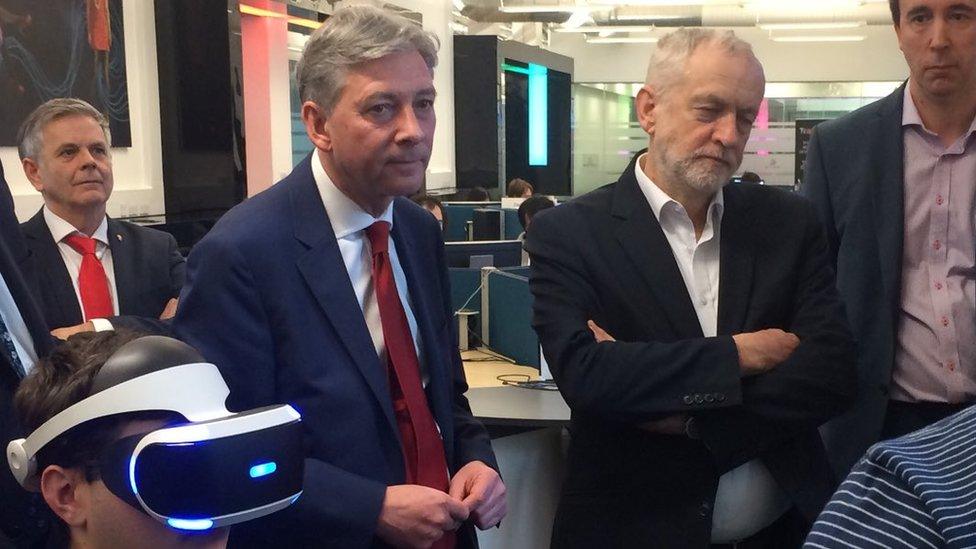Scottish Labour's polite policy row
- Published
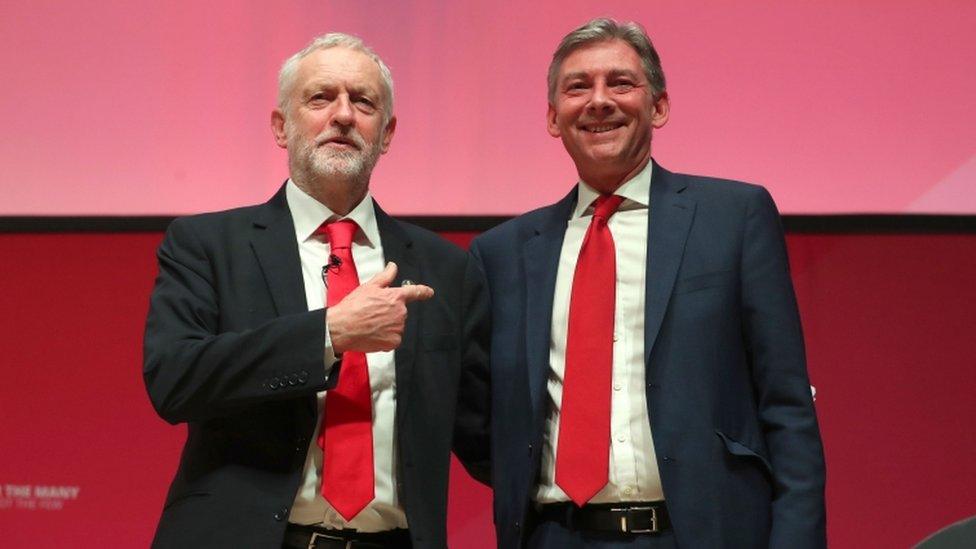
Perhaps it was the influence of Jeremy Corbyn, perhaps it was the soothing environment of the great and noble city of Dundee, but the Scottish Labour conference today seemed ineffably polite.
You'll know, of course, that Mr Corbyn prides himself on a courteous manner. He declines to resort to personal insult - although he came close at one point in his remarks this afternoon.
But, then, he was speaking about the media during that section. So that doesn't count. And, in any case, his remarks remained relatively modest.
His mission seems to have spread. Behind the scenes, there was a pretty good-going rammy about the Brexit debates at conference.
As the agenda was outlined, there was a shout of "point of order". Aha, we thought, here we go. But no. Paul Cruikshank of Glasgow Anniesland lodged his protest with politeness and gentility.
How could it be, he inquired, that the Scottish party had mostly dodged saying anything in particular about Brexit for months - only to produce a wordy Executive statement on the very eve of conference?
Was it, he asked solicitously, coincidence that the result was that a potential vote on the issue of the single market would, in practice, be pre-empted unless conference voted to reject the Executive statement en bloc?
He was assured that the party would not resort to such Machiavellian practices. Quietly, politely, he resumed his seat.
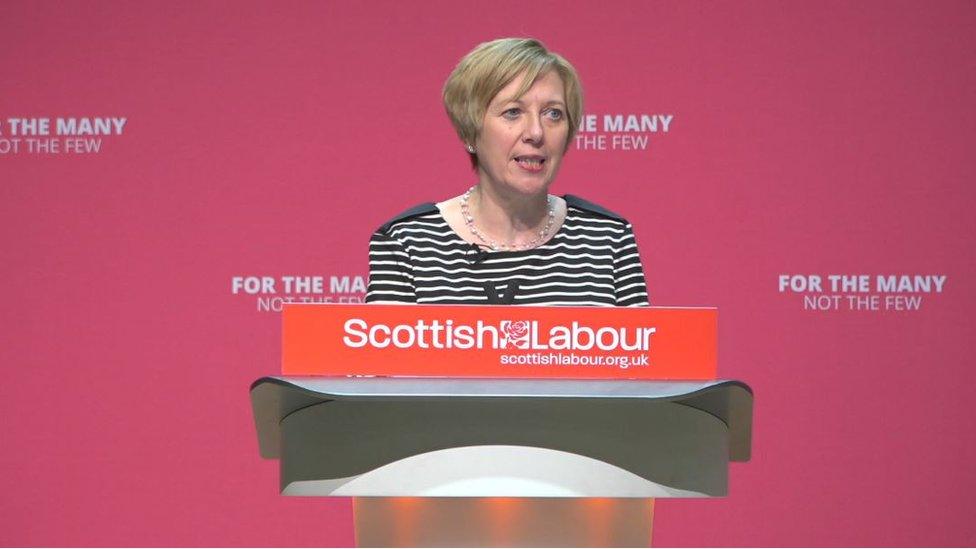
Lesley Laird demanded the "shroud of secrecy" over Brexit powers was lifted, three hours after it had been
Then there was the speech by Lesley Laird, the Shadow Scottish Secretary. She too was civility itself. Gently, without rancour, she urged a transformation in Scotland's economy.
In a comparably modest fashion, she pressed the UK government to publish without delay the full details of the returning EU powers which have caused such controversy between UK and Scottish ministers.
No doubt it was a similarly respectful attitude among the audience that generated a degree of forbearance. Nobody rose to point out that the UK government had done just that. They had published said documents. In detail. This morning.
Sadly, I have to record that this admirable habit of gracious, chivalrous behaviour did not extend to the wicked media - who gleefully noted the discrepancy. Shocking.
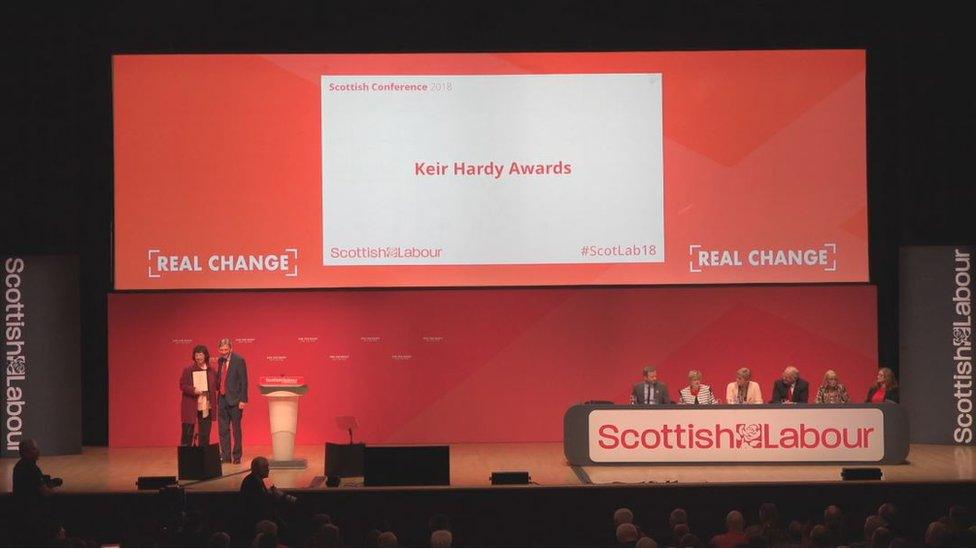
Labour struggled with the spelling of founding leader Keir Hardie
But, alongside the gallantry, there was steel and substance in Mr Corbyn's comments. Although he campaigned to Remain in the EU, one or two carping critics suggested that he was less then fervent.
Some cheeky individuals even had the nerve to recall certain comments by Mr Corbyn from the past which perhaps hinted at a degree of Euro-scepticism.
Today we learned more. He would not, he said, sign up to any post Brexit deal with the EU which hindered his ability in Downing Street to impact upon the economy.
So no rules which limited state intervention and aid. No deal which cast doubts upon renationalisation of key industries such as the postal service and the railways. Nothing which encouraged "the tide of privatisation and outsourcing."
That, one presumes, is why he remains opposed to membership of the single market while he has moved towards support for a form of customs union. He dislikes the notion of an over-cosy proximity to Brussels if it were to result in blocking his wider agenda.
Which is also why the conference has been conjoined to back what is described as a "unity" statement on Brexit in preference to a range of motions, including a vote on single market membership.
As one close observer of such manoeuvring commented to me: "A degree of calculated ambiguity can be helpful on occasions."
- Published9 March 2018
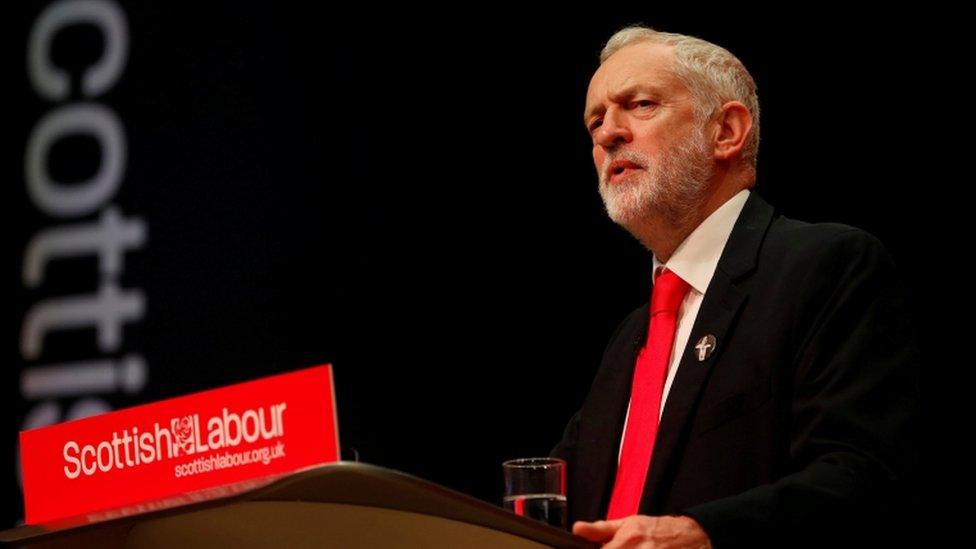
- Published9 March 2018
